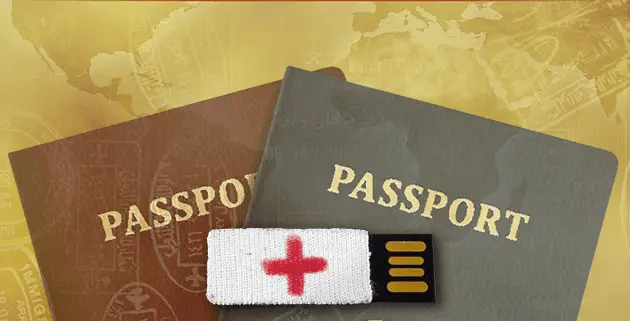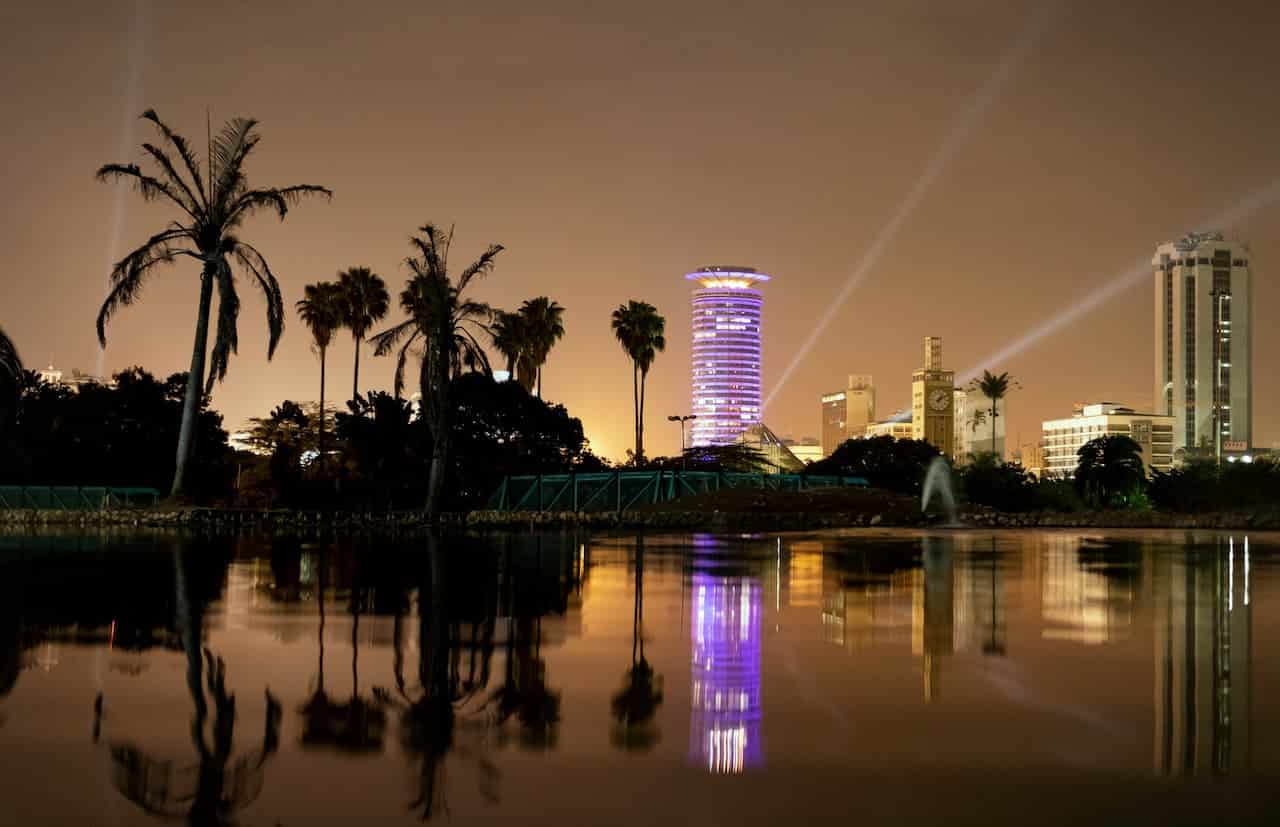What To Do If Injured In A Car Accident Abroad
Road traffic accidents are one of the most common, and invariably serious risks that tourists face when travelling abroad. According to the World Health Organization (WHO), road traffic injuries caused an estimated 1.35 million deaths worldwide in 2016 and the risk of being involved in a road accident is three times higher in low-income countries than in high-income countries. The WHO estimates that road traffic fatalities will be the fifth leading cause of mortality by 2030.
If you are involved in a car accident abroad, there are a number of things you should do, both when preparing for your trip as well as after an accident.

Preparing for your trip
When preparing for your trip abroad, you need to consider a few key details regarding travel. The first question you need to ask yourself is; do you really need a car while abroad? Most tourism destinations have bus transportation services to get to and from key tourist attractions, while hotels and lodgings are centralized within walking distance of multiple attractions. Resorts and many tourist sites also provide their own transportation to shuttle guests and the fee is often complementary or offered at affordable rates.
If you don’t need a car, great! But that doesn’t mean you might not be struck by a vehicle while walking across a street. Being alert and being patient while crossing busy intersections will help lower your risk of being in an accident as a pedestrian.
If you do plan on driving, or it can’t be avoided, there are a few steps to take when making your travel arrangements. If you are renting a car, make sure you get insurance on the vehicle. While your own insurance often covers you while driving a rental vehicle in the country you live in, this often does not extend across national borders.
With insurance out of the way, the next thing you’ll want to do is read up on the basic traffic laws of the country you’ll be visiting. Besides which side of the road you drive on, there may be subtle differences in traffic laws from country to country, such as the right of way when coming to a four-way stop sign. Knowing who has the right of way, and when, will make you more aware of how other drivers may react and help you drive more defensively.
In case of an accident: Don’t panic
Being in unfamiliar territory not only increases your chance of being involved in an accident but also adds to the stress and anxiety levels. If are involved in an accident abroad, first take a few deep breaths and collect yourself. Make a mental note of any aches and pains you might be feeling, and check yourself out to make sure you’re not seriously injured. Call the local authorities to report the accident straight away if it is anything more serious than a fender bender, and even if it is a minor accident you’ll want an official record of the incident. From there, check on the other driver and passengers to make sure they are alright if they haven’t left the vehicle. Stay calm, try to be non-confrontational, and if there’s a language barrier, try to communicate as best you can or simply wait for authorities to arrive to assist in translating.
Gather as much information as you can, from the make and model of the other vehicle to the driver’s information and photos of damages to both vehicles. This will help your insurance company or the rental insurance agent piece together the facts of the accident and help determine liability for the auto side of the claim. While the rental insurance should cover the damages to the vehicle, it will make their lives a lot easier when negotiating the claim. The liability portion may also play into the medical aspect of the claim depending on the insurance and liability laws regarding medical coverage. In many countries, personal injury is covered by the policy of the driver’s vehicle, or in your case, either your policy or the rental policy, but this isn’t always the case, and there are exceptions such as pain and suffering which might not be factored into what the insurance will pay out.
I‘m injured! Now what?
The first thing you’ll want to do is contact your insurance, the rental insurance, and an auto accident attorney to get as much information as you can regarding which party will be covering the basic medical bills such as ambulance bills, medical diagnosis, and standard treatment. This is often the most complicated part of an accident claim, as there can be a number of policies covering the same vehicle. Depending on your insurance policy, your cover may kick in as excess to anything the rental policy doesn’t cover. In other cases, the medical expenses will be covered solely by your PIP coverage, and any excess medical expenses would have to be sought from the other involved party.

If you were driving the vehicle for work or travelling on business, or if it is a company owned vehicle, this adds a further layer of complication on top of figuring out who is responsible for your expenses. If it’s a company vehicle and your accident happened while technically working for your employer, they may be liable for your medical expenses through workers’ compensation or similar cover. While this cover may or may not be primary, it might act as a possible source of excess cover should you need it.
If you are on holiday, you would likely have to file through either the rental company’s insurance, your own policy, or the policy of the other party depending on the circumstances surrounding the accident. This website explains different types of liability laws, how they may apply to specific accidents and circumstances, and how to apply for no-fault benefits when injured in an accident. In many cases, you only have about one month’s leeway to apply for no-fault benefits, so getting the injury portion of your claim resolved and the paperwork submitted is the first thing you should take care of.
You always have a right to claim medical damages when in an accident, be it from your insurance or whichever cover would be considered primary. Gather as much information as you can at the scene of the accident in order to best exercise that right, as liability negotiations and the coverage determination can be an extremely difficult process to navigate. Submit any medical documentation to your insurance and/or your rental company’s insurance as soon as possible, as well as have your attorney send a letter of representation as soon as possible if you have one. Having an attorney working with your insurance company can help navigate this process, as they have access to certain resources your insurance company might not, and your insurance company has access to resources such as accident report databases, insurance claim and policy cross search databases, and ISO searches not open to the general public or even to many attorneys.
Someone else got injured
After the initial accident has been resolved, a police report has been filed, and you have obtained all of the necessary information from the other party regarding their insurance, the first thing you’ll want to do is contact an auto accident lawyer to help defend you. In many cases, victims of auto accidents will try to pursue the other driver personally for any excess damages that insurance might not cover, or even coverage for preexisting conditions or unrelated costs they try to justify as part of the accident. Having a good lawyer working with your insurance company will help protect you from these false claims as well as any excessive payouts as well as help handle any legal documents and contacts with the courts. They will also help represent you if a formal case is brought against you for damages.
There was a pedestrian involved
In most cases, unless it can be proven that the pedestrian intentionally put themselves in harms way with the intention of being struck (like people throwing themselves at vehicles in order to file an injury suit), the driver of the vehicle is almost always at fault, even if the vehicle technically had the right of way. If there is a pedestrian involved, be it yourself or another party, seek legal counsel immediately, as in many cases, the injured party may try to seek damages that far exceed what was actually caused by the accident. If you were injured as a pedestrian, an accident attorney can help build a case to justify your relevant medical expenses, as many insurance companies tend to try to pay the bare minimum if they can. While your insurance may cover your basic expenses, depending on your policy, you may end up having to pursue the other party’s insurance or the other person directly for any additional damages not covered by insurance.
In Review: The basic steps
When all is said and done, there are a few key steps that need to be taken to protect yourself. If you’re involved in an accident, it’s important that you:
- Make sure you’re not injured, and if you are, determine the extent of your injuries.
- Check on the other driver if possible. If exiting the vehicle might put you in danger, or if you have severe injuries, stay in the car.
- Call the police and/or medical services if necessary. Having a police report will help keep track of not only everyone involved, but also any medical complaints the involved parties sustain when on the scene. This helps prevent uninvolved parties claiming they were injured in the accident.
- Exchange information with the other driver, especially insurance and policy information. This will help your insurance company track down which company to seek damages from or negotiate a settlement with. This information is also usually on the police report if need be. If the person has no insurance, most insurance cover comes with UM or UIM coverage, or Uninsured/ Underinsured Motorist cover which will help with the costs in situations where the other driver does not have insurance.
- Call your insurance company or the company insuring your vehicle if it is a rental. You want to make a claim and report the accident as soon as possible, as it tends to look better for insurance companies if you notify them, rather than having to hear it first from the other party or their insurance. Also, people are generally more inclined to believe or be more accepting of the initial account of an event they are given. If you tell your story first, they’re naturally more inclined to believe it unless other information conflicts with what you’ve told them.
- Call an auto injury attorney if there are any complaints of pain from either party. It’s best to get all the information you can early and have a plan to protect yourself just in case the other driver decides to file suit. You don’t need to retain an attorney at this point, but simply calling for a consultation will help you plan your next steps in the process.
If you are injured in a car accident, it is also important you save everything. Make a file for any paperwork related to the accident, be it police reports, letter of representation, civil court summons papers, or medical bills and auto repair estimates. Having all of your paperwork together will help keep you organized during the more hectic portions of the claims process, and you’ll have any required documents on hand at a moment’s notice should your insurance or attorney require them.




